- Home
- Roger Taylor
Whistler [A sequel to The Chronicles of Hawklan] Page 14
Whistler [A sequel to The Chronicles of Hawklan] Read online
Page 14
What am I doing? he thought in sudden exasperation. Behaving as though this person is really here. He's my creation—he can only be my creation. But why would I invent such a bizarre character? And where did that strange verse come from? He shivered. The words of the rhyme seemed to touch something deep and terrifying within him.
Perhaps that was the way with dreams. He had heard it to be so. No logic, no sense, all manner of disjointed events jumbled together, sometimes feelings of terror for no apparent reason. But he did not dream.
The man was speaking. ‘There's nothing much wrong with your face, night eyes,’ he said. ‘You're as I would imagine you to be. But let's be clear about who's the figment of whose imagination.’ He played a rapid, piercing trill that seemed to tear into Vredech. ‘I'm the real one, the one lying somewhere in a sleep from which I can't waken. You're the ...’ He stopped, paused, and then threw up his hands. ‘What am I doing?’ he cried out. Vredech found himself grimacing at this echo of his own thoughts. The flute was flicked towards him again, agitatedly. ‘What am I doing, talking to you as if you existed.'
Vredech followed an impulse. ‘Who are you, sleeper?’ he asked, returning to his first question. ‘I told you my name. I'm Allyn Vredech, a Preaching Brother in the church of Ishrythan in Canol Madreth.’ Then, rather self-consciously, he added, ‘I suspect I'm having my first dream ever.'
The flute, on its way to the mouth again, stopped sharply. ‘Night eyes can't dream,’ its owner said disparagingly. ‘You should ...’ he hesitated. ‘I ... I ... should know that.’ The thin face became concerned and, incongruously, the bony hands twirled the flute so that it wound up the straggling beard until it was tight under the man's chin. They repeated the process in reverse, and the flute was swung up to tap the red mouth thoughtfully.
'Why would I have you say that?’ the man said. ‘Why should ...'
'You didn't have me say anything,’ Vredech interrupted sharply. ‘I am my own self, within Ishryth's writ. I say what I want ...'
'Like verses you've never heard before?'
The mocking rejoinder stung Vredech. ‘If I can conjure this place out of nothing, and a creation like you, then I can presumably conjure up some childish poem.’ He was almost shouting. Then, somewhat to his own embarrassment, he became wheedling. ‘Now tell me who you are. It's only fair, isn't it?'
The flute brayed out a distorted, breathy note that made Vredech start.
'You know I can't answer that,’ said the man, the still-playing note distorting his voice eerily. ‘I can give you all names, so it tells me nothing that you have them and proudly announce them. But you know that mine is gone. That's why you taunt me, isn't it? Perhaps if I had it I'd awaken, and be rid of you all.'
'What do you call yourself then?’ Vredech asked, increasingly intrigued by this strange dialogue.
The man hunched up his shoulders warily. ‘I'm not sure I want to carry on with this,’ he said. ‘You know what you call me.'
Vredech shook his head. ‘No, Whistler, I don't, I ...'
'Aha! Two times, Preacher. Two times.’ The eyes were wide and wild in triumph again, and the flute circling from hand to hand. Then it was at the mouth once more and the three plaintive notes were sounding, over and over, the player moving his head from side to side and swaying hypnotically. They were echoing all around Vredech as the man spoke. ‘Get out of my dream, night eyes,’ he said, his voice full of anger. ‘False guide. Wake me or leave.'
'I ...'
'Wake me or leave.’ Strident.
Vredech reached out, appealing. ‘No. I ...'
The man's face became livid with rage and it seemed to Vredech that it filled his entire world. As did the screaming voice.
'GO TO HELL, PRIEST!'
Vredech's eyes jerked open and he was on his feet before he realized that the strange shadow-strewn world was gone and he was in his room again. It did not help that all around him were echoing the strange man's despairing notes mingled with his savage execration. Vredech clapped his hands to his ears but the action seemed only to trap the sounds in his head. Staggering slightly he reached out to steady himself on the mantel shelf. As he did so he caught sight of his reflection in a small mirror that stood there. It had been in his family for years, a simple black frame, oddly smooth, housing a silvered glass that showed not the least tarnishing to mark its great age. As a child he had sometimes stared into it so intensely that after a while he would feel that he was the image and the room in the mirror was the reality: vivid, perfect, and quite unreachable.
It had chilled him then, but he was chilled now for a different reason. For the face that looked out at him from the darkened room with its unsteady flickering lamp shadows, had eyes whose sockets were black as coals.
* * *
Chapter 12
Eyes of night,
Dreams aflight,
Darkling gaze,
Travel the ways...
The words rang in Vredech's head like a knell and, with a cry, he jerked away from the fearful image in the mirror. His mind clamouring for escape, he pressed his fingers hard into his closed eyelids. You're still half-asleep, he thought frantically. You've just woken up. It's only the lamplight. It's...
He gave up. There was no alternative but to look again to see if that first glance had shown him the truth.
His hands were shaking as he forced himself to take hold of the mirror. At first he could not focus, bringing on a spasm of earnest blinking until eventually his vision cleared. Standing where he was however, his eyes were heavily shaded. Hands still unsteady, he moved the mirror and twisted himself around until the faint lamplight was shining on his face. Almost childishly, he pulled a long face, widening his eyes manically in unconscious imitation of the dream figure who had just so violently ejected him into wakefulness.
For a terrifying instant he thought he was staring again into the black orbs that the mirror had shown him before. But as he blinked again, the image was gone. His own face, twisted awry, gaped wildly out at him, but his eyes were quite normal. Relief swept over him.
'Of course. Of course,’ he whispered as, composing his features, he slowly returned the mirror to the mantel shelf. ‘What else did you expect, foolish man?’ He moved back to his chair, massaging his brow with his fingertips and repeatedly muttering, ‘Foolish man.’ He turned up the solitary lamp and then lit another. The light blossomed to fill the room, and though some of the shadows deepened at its touch, the room became more its familiar self again.
Night eyes, night eyes. He shivered at the memory of the words. So many images, he thought. So that was a dream, was it? It needed little imagination to see why people would sometimes come to him for advice after such an experience. It had been so vivid; at once real and unreal. Easy to doubt one's sanity in that strange place—wherever it was.
It must have been as his father had once suggested—perhaps in reality he dreamed regularly but normally did not remember. Now, for some reason he had. That was not an idea he should have any difficulty in accepting, surely? And, despite widows’ tales to the contrary, he knew that dreams came only from within. What he had seen, heard, felt, could only have been of his own making, no matter how strange.
'Night eyes can't dream.’ The words came to deny this conclusion. He remembered the Whistler's voice, dismissive, scornful almost, that such an obvious thing should have to be mentioned. But apart from the strange reference to his eyes, the idea that he could not dream had been his own for as long as he could remember.
Then he suddenly recalled the sight of his fellow Chapter Brothers as they had struggled up the mountain through the darkness in search of Cassraw. At one point the light had been so strange that they, too, had had eyes whose sockets seemed to be full of night. The memory relaxed him. So that was where that idea had come from.
As for why he should choose to create strange figures and dialogue just to torment himself, that puzzle must be left for some other time. The fear for his sanity was almost gone
now, driven into nothingness by the solidity of the ordinary world that had once more closed about him.
He leaned back in his chair and stared at the ceiling. Slowly his breathing grew quieter, his heart began to beat more steadily, and his hands stopped trembling. His thoughts returned gradually to the problems that he had been considering when he first sat down, although he felt oddly reluctant to move away from the vivid intensity he had just left.
Still, he could ponder his new experience any time. At the moment he had more important considerations to deal with than his first dream—his first remembered dream, he corrected himself. He dropped his hands on to his knees noisily and sat up straight, signalling to himself that he must now move on. Tonight was to be a vigil still. He had to find a solution to his unsettled disposition of late, and sleeping—dreaming—the night away was hardly likely to help.
Yet something had changed. He was different. As in the shadow-strewn landscape he had just left, his perspectives had changed, though he could not have said in what manner. Perhaps the thoughts and ideas that had come to him in the dream had been his father's, ‘little swine lurking about below the surface, getting ready to ambush you'. Perhaps the whole thing had been some kind of catharsis—a purging, a purification. Certainly it had taxed him in ways he had never known before. The place, if ‘place’ was the correct word, though eerie and disturbing, had seemed as real as this room. And the strange figure of the Whistler with his haunting tune—from what depths had he arisen to test Vredech with taunts about his very existence? ‘I made you,’ he had said. ‘I made you.’ And he had trapped him twice, first with the verse, and then with his name. That had been truly disturbing. What self-flagellation did he represent?
As for that verse—that damned silly verse! That was not remotely familiar, yet Vredech knew it now as though he had known it all his life, and it kept running through his mind, demanding attention. Why should he find it so alarming—no—why did he find it downright frightening? He mouthed it silently to himself, searching for signs within it that might help him to track down its source. But there was nothing there, and it still held a terror of some kind which was not to be found in the simple words. Furthermore, he noted, it brought back to him the intense reality of his dream-world. For a heart-stopping moment he thought the firm contours of his room were fading again.
Angrily he dashed the impression aside. No doubt at some time in the next few days he would recall the verse as having been learned at school, or from his mother or grandmother, and all would then be clear to him. If he kept on worrying at it, he was merely postponing that revelation.
He went to the window and opened the shutters. It was dark out, and all he could see at first was the reflection of himself silhouetted against the lighted room. He looked at it pensively for a moment and then, bringing his face close to the glass, he peered through it at the dimly-lit streets of the town. Rain on the window blurred such street lamps as were lit. As he gently closed the shutters again, he made a decision. Picking up his cloak, he walked quietly out of the room.
The shadows wavered slightly as he left, leaving the door open. Then, moments later, they flickered and danced a little more urgently as cold air from the street wafted into the house and sought out the lamps. They became still again as the sound of the Meeting House door closing faded into the silence.
* * * *
That night there was a murder in Troidmallos. A peculiarly nasty one.
Skynner was bleary-eyed and irritable when he arrived at the scene and nothing happened there to improve his demeanour. Murder was not a common crime in the town but he had had the misfortune to encounter a few in his time as a Keeper. Ironically, for all the horror associated with such a crime, the cause and the culprit usually took little finding. First he would question the spouse and any other ‘loved ones', then the immediate relatives, followed by close friends, and perhaps business partners and the like. Very quickly from that would emerge a picture that would almost inevitably direct him towards his goal —usually some pathetic, inadequate individual with precious little control over his own destiny, and, by the time of his discovery, often utterly destroyed by the forces that had led him or her to such violence.
Sometimes a murder would ensue from youthful brawling, and these, too, were usually easy to solve. Occasionally there would be an abrupt and vicious end to a dispute, or a realignment of authority within the criminal elements that Troidmallos shared in common with every other community in Gyronlandt. In such cases, Skynner would investigate with sufficient diligence to satisfy his professional conscience but would meticulously avoid any excess of zeal. Generally he viewed them with a pragmatic air as, ‘One less for me to worry about. Pity more of them don't do it. Save us all a lot of problems.’ It was a commonly held view.
As a rule, however, he took little relish in bringing murderers to justice, as such affairs were invariably hallmarked by a squalid pettiness that left him feeling soiled.
As he followed Albor, the duty Keeper who had discovered the body, into a narrow alleyway between two warehouses, his mood was therefore mixed. His expectations of a rapid conclusion were quite high, but already he could feel the taint of what the next few days would bring as he saw himself once again having to wade through the dismal lives of the victim and who knew how many other wretched creatures. He set the prospect aside. It was unavoidable so there was no point in suffering it twice. Now he must steel himself for whatever grim spectacle lay in wait for him, knowing that he would have to bear it with seeming indifference as befitted an experienced Serjeant Keeper. Albor's unusual reluctance to go into details however, unsettled him a little.
Halfway along the alley they reached a small circle of rain-soaked Keepers, all with their night lanterns turned high as if some form of extra protection were needed to keep the night at bay. The circle parted silently as he arrived and, maintaining the silence, he and Albor stepped through the gap. Quickly he noted the faces of his men. Except for Albor they were all fairly junior. One was obviously distressed, and a couple were grinning uneasily, while the rest were trying unsuccessfully to keep their faces unreadable. Curious, nervous, and ashamed of both, Skynner thought. Another problem for him. But he could not prevent his own lip from curling back as he crushed down the remains of his own reluctance to do what he had to do next. Crouching down, he turned back the sheet that someone had placed over the body. Albor brought a lamp close to the upturned face. The fine rain danced silver and black through its light. Skynner's brow wrinkled unhappily as he found himself looking into the fear-filled eyes of a young man. For the first time, though for no reason that he could have explained, his routine expectations of a rapid solution to this affair started to falter.
'Anyone know him?’ he asked without turning round, at the same time throwing back the sheet entirely. There was an intake of breath behind him as the lamplight exposed a lacerated throat and a tunic covered with a random pattern of gore-stained slashes.
'If anyone's going to be sick, get down the alley now, and then get back here at the double. You're Keepers and you're on duty,’ Skynner growled unsympathetically as he turned round and glared at his men. No one moved, though all faces were now drawn and tense. ‘Does anyone know him?’ he repeated angrily. ‘I don't want to spend all night out here getting soaked while you lot gather your wits.'
The hesitation persisted.
'Well, look at him, for pity's sake!’ he shouted as he stood up. ‘He won't bite you, poor sod. Whereas I will.'
This was sufficient to galvanize his men.
It appeared that no one knew the victim.
'Marvellous,’ he muttered caustically, looking round at the warehouse walls bounding the alley. Glistening darkly with rainwater, they stretched up into the night beyond the bobbing lantern-light, like sinister observers. Neither witnesses nor inhabitants would be found around here. ‘Well, he might have died here, but he certainly doesn't live here, that's for sure,’ he announced. ‘We'll have to wait for someone
to come looking for him. Failing that, I suppose we'll have to get his picture posted up.’ He shook his head and swore softly to himself, then he began going through the man's pockets. ‘Empty,’ he said, his voice a little surprised. ‘Look around. See if there's a pack or a bag lying about somewhere.'
There was a brief flurry of activity in the alley, but nothing was found.
'Robbery,’ Skynner concluded, though he was frowning. Street robbers usually worked in groups of three or more and used intimidation, or at worst clubs rather than knives, precisely to avoid risking killing people and thereby bringing the Keepers relentlessly down on them. Perhaps something had gone wrong here. The lad had argued, resisted. Someone had panicked or...
Or what?
He looked at the gashed throat and the mass of wounds in the young man's chest, then dropped the sheet back over him with an extravagant gesture to disguise his response to the thoughts that were beginning to come to him. This killing had not been the result of an accident during a scuffle. It had been frenzied—and that betokened a jealous lover, a betrayed husband. Yet all the man's possessions had apparently been taken away.
A savage, unrestrained killing and robbery. It didn't make sense. Or rather, it made a kind of sense that he did not really want to think about. And something else was troubling him, too, though he could not bring it into focus.
He looked at Albor and grimaced, keeping his face away from the others. ‘Get a cart and take him to the buriers. I'll need to have a good look at him in daylight, see what's really been done to him. Leave a couple of men here to stop people walking through until we've given the place a proper search in the morning.’ He turned to the others. ‘The rest of you get back on duty. There's nothing else to be done here tonight.'

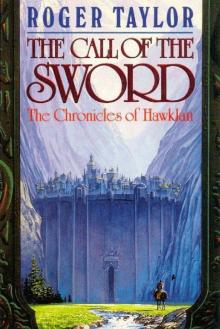 The call of the sword tcoh-1
The call of the sword tcoh-1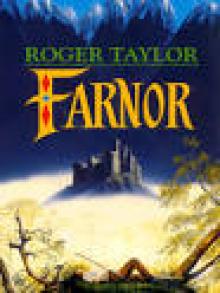 Farnor
Farnor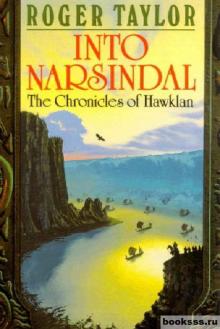 Into Narsindal
Into Narsindal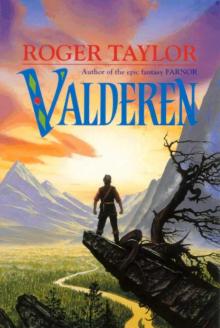 Valderen ft-2
Valderen ft-2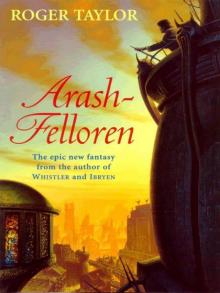 Arash-Felloren
Arash-Felloren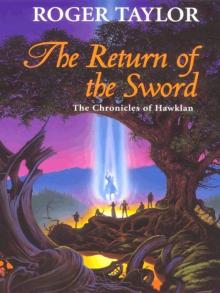 The Return of the Sword tcoh-5
The Return of the Sword tcoh-5![Ibryen [A sequel to the Chronicles of Hawklan] Read online](http://i1.bookreadfree.com/i1/03/26/ibryen_a_sequel_to_the_chronicles_of_hawklan_preview.jpg) Ibryen [A sequel to the Chronicles of Hawklan]
Ibryen [A sequel to the Chronicles of Hawklan]![The Call of the Sword [Book One of The Chronicles of Hawklan] Read online](http://i1.bookreadfree.com/i/03/24/the_call_of_the_sword_book_one_of_the_chronicles_of_hawklan_preview.jpg) The Call of the Sword [Book One of The Chronicles of Hawklan]
The Call of the Sword [Book One of The Chronicles of Hawklan]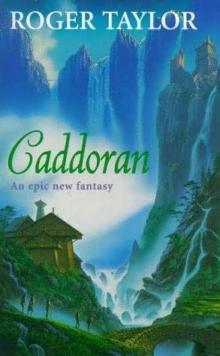 Caddoran
Caddoran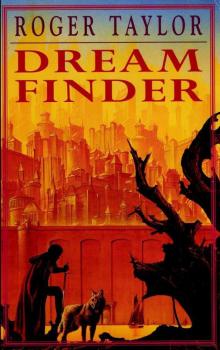 Dream Finder
Dream Finder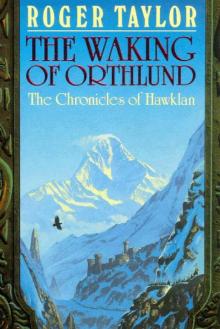 The Waking of Orthlund
The Waking of Orthlund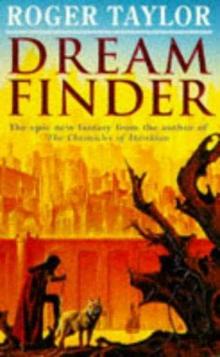 Dream Finder cohs-1
Dream Finder cohs-1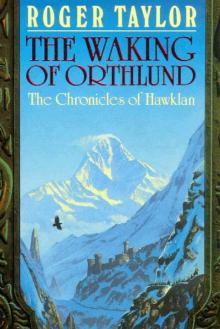 The waking of Orthlund tcoh-3
The waking of Orthlund tcoh-3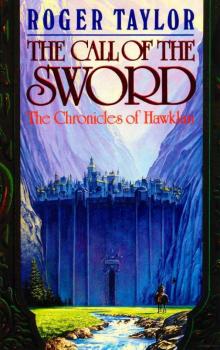 The Call of the Sword
The Call of the Sword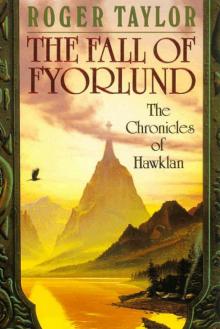 The fall of Fyorlund tcoh-2
The fall of Fyorlund tcoh-2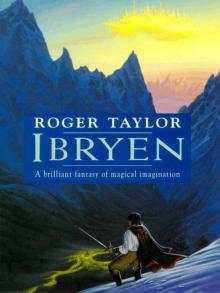 Ibryen
Ibryen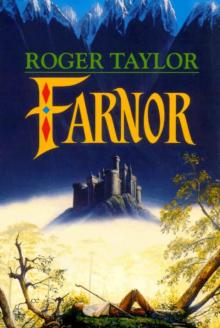 Farnor ft-1
Farnor ft-1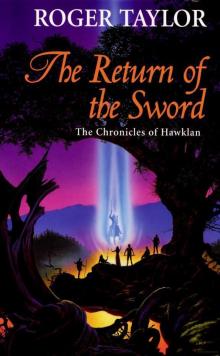 The Return of the Sword
The Return of the Sword![Into Narsindal [Book Four of The Chronicles of Hawklan] Read online](http://i1.bookreadfree.com/i2/04/06/into_narsindal_book_four_of_the_chronicles_of_hawklan_preview.jpg) Into Narsindal [Book Four of The Chronicles of Hawklan]
Into Narsindal [Book Four of The Chronicles of Hawklan]![Valderen [The Second Part of Farnor's Tale] Read online](http://i1.bookreadfree.com/i2/04/05/valderen_the_second_part_of_farnors_tale_preview.jpg) Valderen [The Second Part of Farnor's Tale]
Valderen [The Second Part of Farnor's Tale]![The Fall of Fyorlund [Book Two of The Chronicles of Hawklan] Read online](http://i1.bookreadfree.com/i2/04/08/the_fall_of_fyorlund_book_two_of_the_chronicles_of_hawklan_preview.jpg) The Fall of Fyorlund [Book Two of The Chronicles of Hawklan]
The Fall of Fyorlund [Book Two of The Chronicles of Hawklan]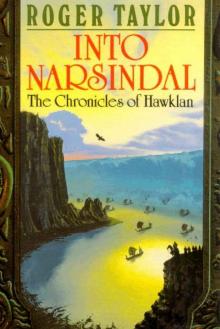 Into Narsindal tcoh-4
Into Narsindal tcoh-4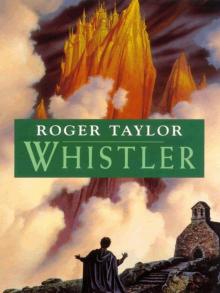 Whistler
Whistler![Whistler [A sequel to The Chronicles of Hawklan] Read online](http://i1.bookreadfree.com/i2/04/12/whistler_a_sequel_to_the_chronicles_of_hawklan_preview.jpg) Whistler [A sequel to The Chronicles of Hawklan]
Whistler [A sequel to The Chronicles of Hawklan]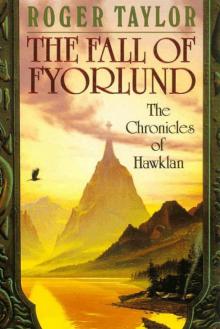 The Fall of Fyorlund
The Fall of Fyorlund![The Waking of Orthlund [Book Three of The Chronicles of Hawklan] Read online](http://i1.bookreadfree.com/i2/04/11/the_waking_of_orthlund_book_three_of_the_chronicles_of_hawklan_preview.jpg) The Waking of Orthlund [Book Three of The Chronicles of Hawklan]
The Waking of Orthlund [Book Three of The Chronicles of Hawklan]